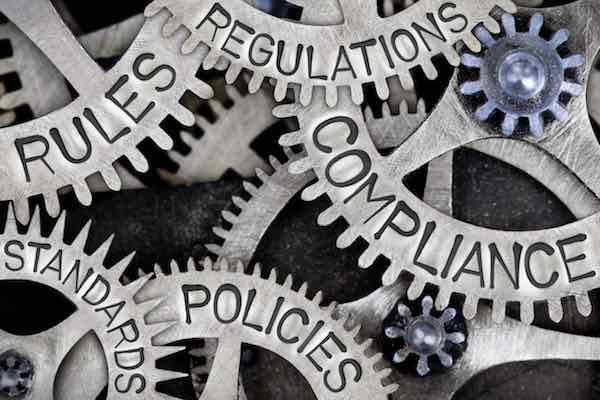With the addition of three words to an existing law, the recently-signed Follow the Rules Act (FTRA) (H.R. 657) provides federal employees protection from adverse actions if they don’t agree with what they’re being asked to do for their agencies if the disagreement is about violation of a rule or regulation.
Originally, Title 5 of U.S. Code 2032 (prohibited personnel practices) stipulated only that federal employees were protected from adverse actions from their superiors when they refused “to obey an order that would require the individual to violate a law.” That left room, though, for a superior to punish an employee who refused to obey an order that would have required the employee to violate a rule or a regulation.
The Follow the Rules Act closes up that loophole by adding “rule or regulation” to the end of that provision of Title 5. Now, a federal employee can refuse to obey an order that would require violating a law, rule or regulation and be protected from reprisal from his or her superior under the Act.
This opens up a new line of defense for federal employees who find themselves at the receiving end of an adverse action because they refused to follow their superiors’ improper orders.
Traditionally, the difference between disobedience on account of unlawfulness and insubordination had been a case of the employee’s word against the boss’ word. Unless a federal law was being violated, a superior could expect an employee to follow the order and grieve about it later, or the supervisor could punish the employee as an act of insubordination when the employee didn’t follow the order. The employee could try appealing to a review board such as the Merit Systems Protection Board (MSPB) if the adverse action caused a suspension greater than 14 days, but without clear evidence that the order disobeyed would have caused the employee to violate a law, the employee didn’t have much of a legal leg to stand on.
The FTRA gives employees more legal leverage to disobey orders they feel are unlawful. If it can be proven that a boss’ order violates any statute, federal rule or federal regulation, then employees are granted whistleblower protection, and when their bosses retaliate by taking some action against them, the employee can seek assistance from the Office of Special Counsel (OSC) for reprisal.
This doesn’t mean employees are free to disobey every order given by their bosses and are free from all punishment. As long as the request is reasonable, employees must perform their duties. Only when orders are in direct conflict with the law, a rule or a regulation can an employee refuse to obey his or her boss. This does not require that the employee be asked to commit a criminal offense – only that they are being asked to violate an existing federal law, rule or regulation.
The FTRA also doesn’t mean employees can expect their bosses to act in a supportive way if they disobey their orders. Some bosses will still take adverse actions against employees for their disobedience, regardless of what the law says about retaliation. All the statute means is employees can claim they were refusing to follow a non-legal order as now more broadly defined when they refused to follow the order, which allows for a complaint for reprisal to go forward to OSC. This should carry weight at a review by OSC or the MSPB, if it were to go that far.
The FTRA may not eliminate retaliation from the federal workplace for employees who disobey their bosses’ orders, but it does expand the scope of who is protected under whistleblower statutes. If you are a federal employee who feels that you’ve been unjustly punished for following the law by refusing to follow an improper order, be sure to speak with a labor and employment attorney to gain the most leverage you can before fighting any adverse action or other act of retaliation.



